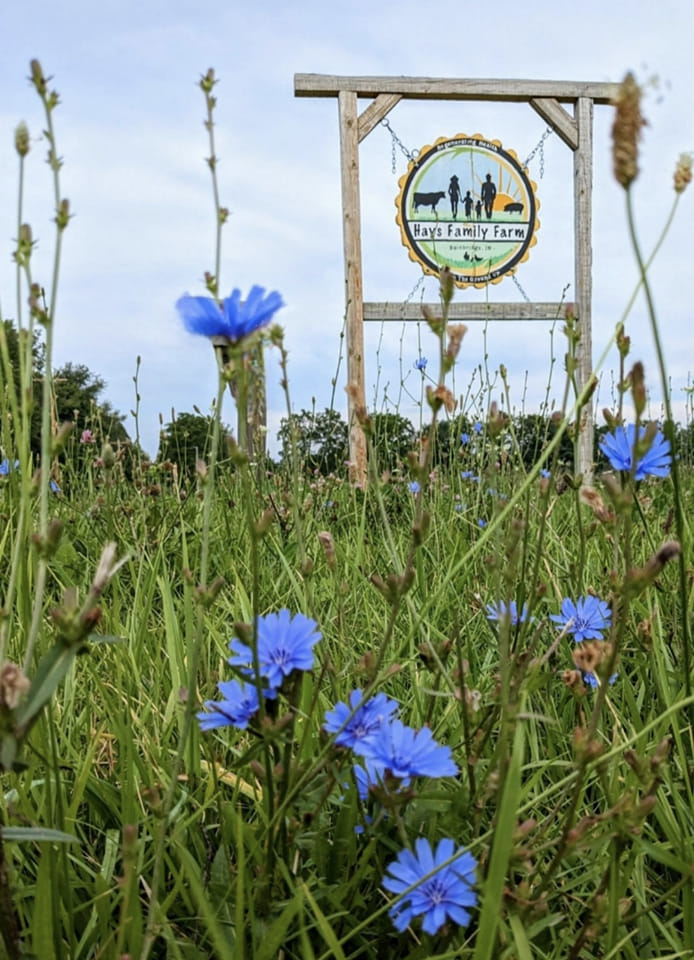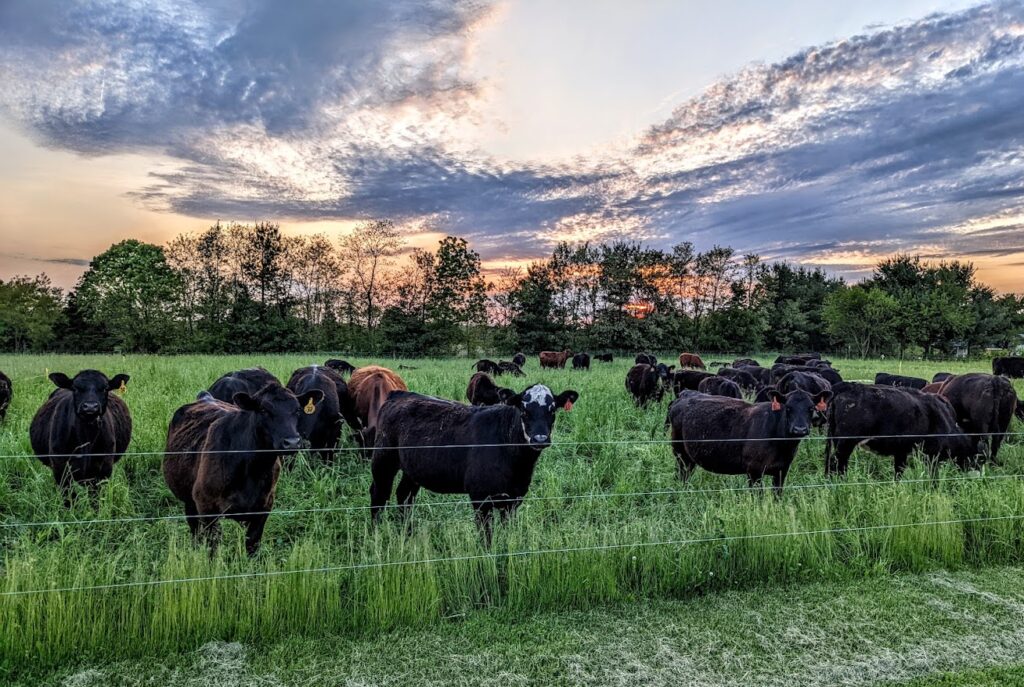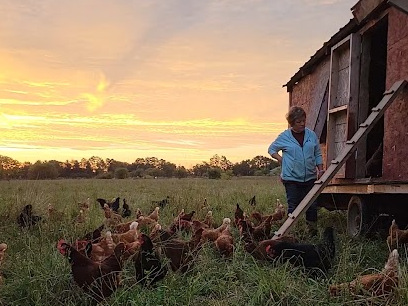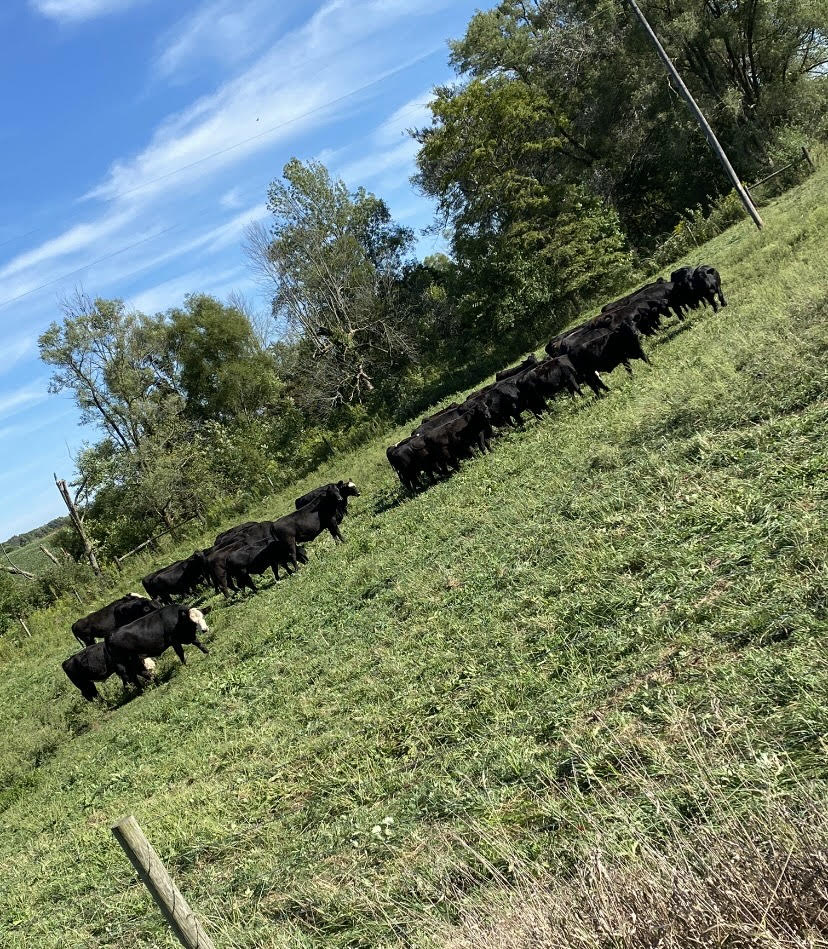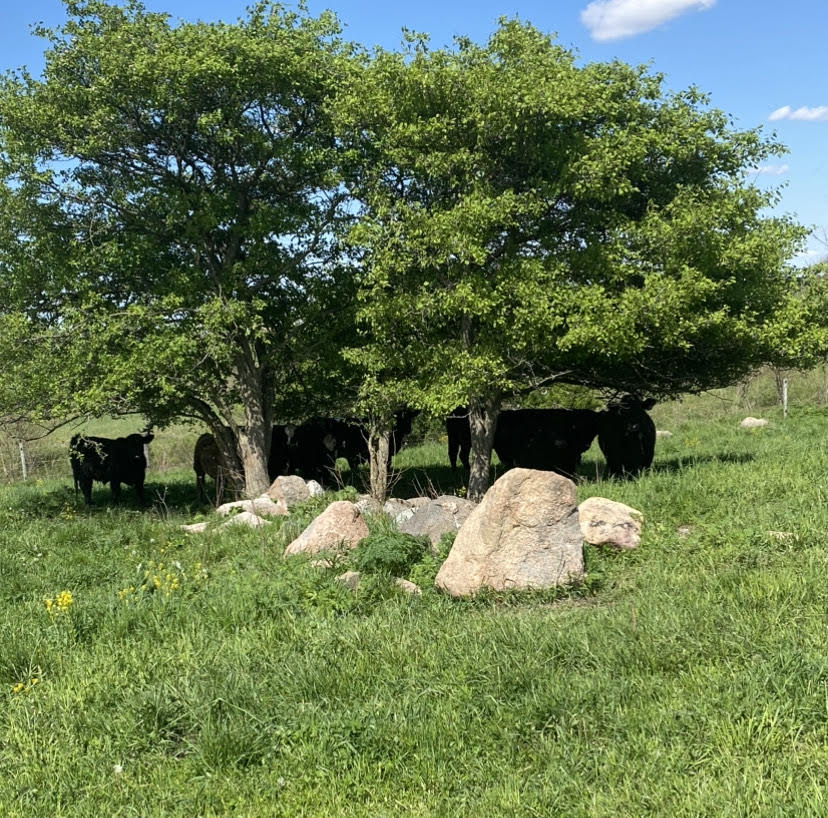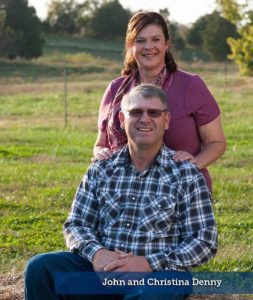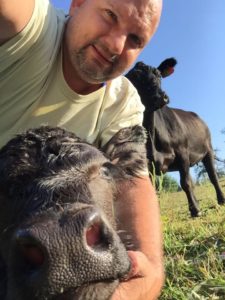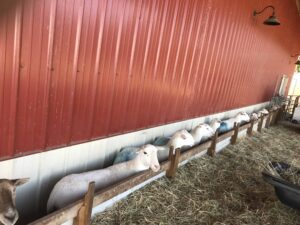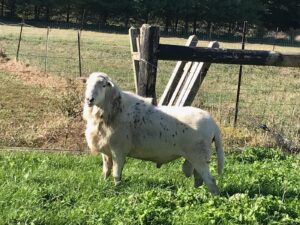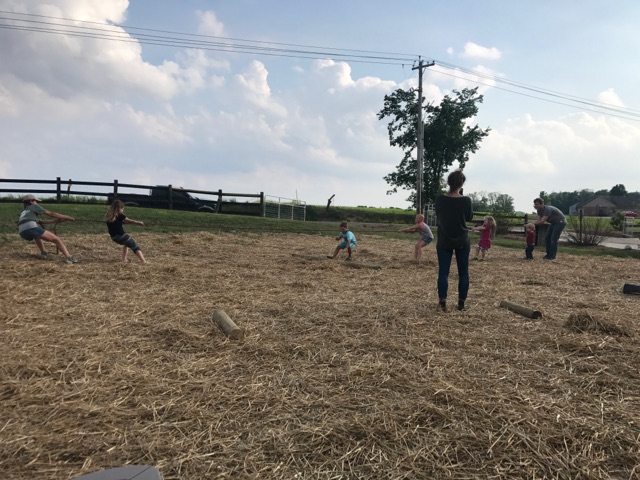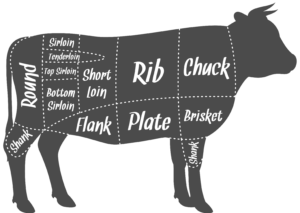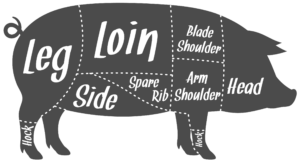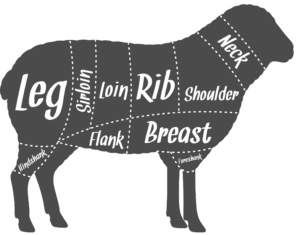 Wow, doesn’t it look like an awesome place to spend time on a hot Indiana summer day. This is one of the three groupings of pasture raised hogs on our farm. I am never more excited than the day we move them outside. It just makes me feel good to see livestock on the grass. Yet, it comes with a cost. I have spent the last ten years studying agriculture by living it. I started with an idealistic view point and now have a realistic view point. You might say I can see both sides of the fence because I live near the fence. While I still choose to eat pasture raised, organic meats, I never condemn the other side. In fact, I understand conventional agriculture. I understand why livestock is raised in confinement. In the end it is our choice. We make the vote for what we want to eat. When our primary concern is a low costing food supply than we are calling for confinement raised livestock. It is the only way. On our farm, the labor requirement is great. To avoid antibiotics we must raise in small batch sizes. We must utilize the land to keep the livestock healthy by providing the greens they need in their diet. Land use is expensive. That same acre of land we might utilize to raise pastured hogs or lambs could grow $1400 worth of corn with very little labor. We must constantly do fence maintenance to prevent a Sunday morning expedition to bring the pigs home. We have to train the pigs young to respect the fence. We have to replant pasture after a rain when the pigs have worked faster than a tiller to turn over the ground in search of roots and grubs that are natural to their diet. There is no doubt that pastured pork is more costly due to the large labor involved. There is no doubt that as a supporter of pastured pork you receive all of the benefits of the labor that goes into it. Yet our primary goal here is to support all local agriculture. Whether a farmer is choosing our model or another model that works for them, we strive to represent the product the best way we know how. That is by telling you exactly who raised it and how they raised it. What did they feed? Were they inside or out? And finally how were they processed? Here is where we can make sure that everything that comes form our facility is distinctly different whether it was raised on pasture or on a traditional farm. It was processed humanely. We use no msg, binders, or other additives other than herbs when requested. We offer choice. Sometimes that choice is confusing so never be afraid to ask what the difference between traditional, pastured, and organic are. We are happy to help you make the choice that best fits the need of your family or organization. Everyone is unique. There is no right or wrong. We just want to make sure there is choice now and into the future.
Wow, doesn’t it look like an awesome place to spend time on a hot Indiana summer day. This is one of the three groupings of pasture raised hogs on our farm. I am never more excited than the day we move them outside. It just makes me feel good to see livestock on the grass. Yet, it comes with a cost. I have spent the last ten years studying agriculture by living it. I started with an idealistic view point and now have a realistic view point. You might say I can see both sides of the fence because I live near the fence. While I still choose to eat pasture raised, organic meats, I never condemn the other side. In fact, I understand conventional agriculture. I understand why livestock is raised in confinement. In the end it is our choice. We make the vote for what we want to eat. When our primary concern is a low costing food supply than we are calling for confinement raised livestock. It is the only way. On our farm, the labor requirement is great. To avoid antibiotics we must raise in small batch sizes. We must utilize the land to keep the livestock healthy by providing the greens they need in their diet. Land use is expensive. That same acre of land we might utilize to raise pastured hogs or lambs could grow $1400 worth of corn with very little labor. We must constantly do fence maintenance to prevent a Sunday morning expedition to bring the pigs home. We have to train the pigs young to respect the fence. We have to replant pasture after a rain when the pigs have worked faster than a tiller to turn over the ground in search of roots and grubs that are natural to their diet. There is no doubt that pastured pork is more costly due to the large labor involved. There is no doubt that as a supporter of pastured pork you receive all of the benefits of the labor that goes into it. Yet our primary goal here is to support all local agriculture. Whether a farmer is choosing our model or another model that works for them, we strive to represent the product the best way we know how. That is by telling you exactly who raised it and how they raised it. What did they feed? Were they inside or out? And finally how were they processed? Here is where we can make sure that everything that comes form our facility is distinctly different whether it was raised on pasture or on a traditional farm. It was processed humanely. We use no msg, binders, or other additives other than herbs when requested. We offer choice. Sometimes that choice is confusing so never be afraid to ask what the difference between traditional, pastured, and organic are. We are happy to help you make the choice that best fits the need of your family or organization. Everyone is unique. There is no right or wrong. We just want to make sure there is choice now and into the future.
Welcome to Hays Family Farm
Hays Family Farm
Meet the Farmers:
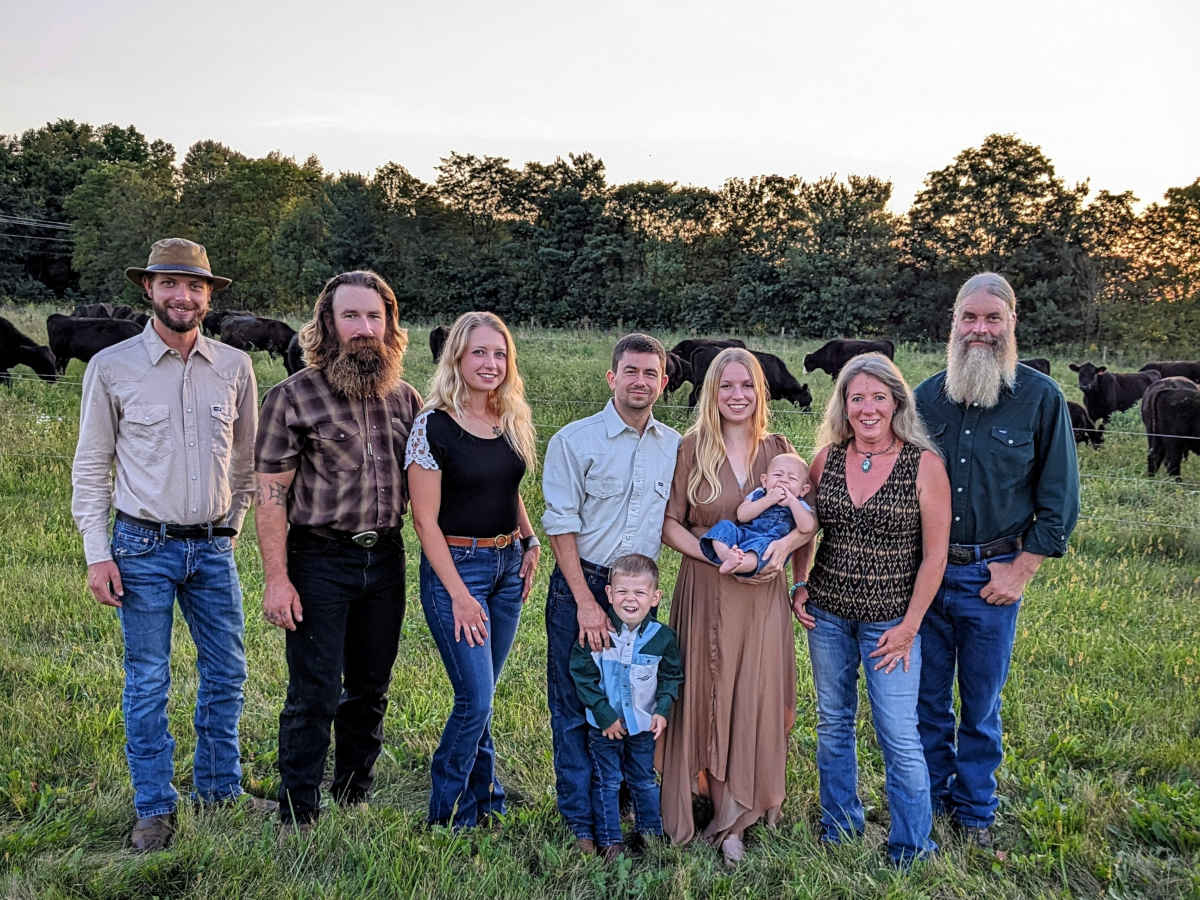
John (1st Generation): The visionary who grew up surrounded by the rhythms of agriculture on his grandparents' farm. After a stint in industrial/commercial AG post-high school, he decided to forge his path. In the early 2000s, he embarked on the journey of raising grass-fed beef. By 2020, a significant portion of our farm had transitioned to regenerative practices.
Jenny: Partner in the farming venture, bringing dedication and passion to the sustainable agriculture movement.
Jordan and Jared: The next generation, adding fresh perspectives and enthusiasm to the family's agricultural legacy.
Discover Hays Family Farm:
Farm Name: Hays Family Farm
Website: www.haysfamilyfarm.net
Facebook Page: Hays Family Farm
Roots in Agriculture Since 2002:
Embarking on this agricultural adventure in 2002, the Hays family has deepened their connection with the land over the years. Although not a designated Hoosier Homestead Farm, our commitment to sustainable practices is unwavering.
Generational Legacy:
Proudly standing as the 2nd generation on this farm, we carry forward the lessons, values, and dedication passed down from our farming ancestors.
The Farming Story:
John's journey began with a vision deeply rooted in his childhood. Growing up among the fields and livestock of his grandparents' farm, he knew farming was his calling. The path led him to industrial/commercial AG after high school, but the call of sustainable, regenerative farming beckoned. In the early 2000s, the first seeds of grass-fed beef were sown, and by 2020, regenerative practices were taking root across the farm. Today, a harmonious blend of pork, chicken, eggs, and grass-fed beef embodies our commitment to providing wholesome, community-strengthening nourishment.
Sustainable Farming Practices:
Welcoming visitors to Hays Family Farm means offering a glimpse into our regenerative farming practices. Farm tours are a journey through daily adaptive grazing for cattle, where chickens play a vital role in the symbiotic relationship that regenerates our soil.
Mission and Vision:
Our mission is simple but profound: to be stewards of the land, prioritizing healthy soils, vibrant plants, happy animals, and, in turn, fostering the health of our community.
Proudest Accomplishments:
A testament to our commitment is the successful transformation of hay fields and grass-fed pastures into regenerative landscapes. The adoption of regenerative farming practices and adaptive grazing techniques has redefined our approach to agriculture.
Farming Highlights:
Diverse Harvest: From horseradish and herbs to broccoli and tomatoes, our fields have embraced diversity.
Learning from Mistakes:
Monoculture row crops, including field corn and soybeans, were tried and deemed a less-than-ideal venture.
Family Achievements:
Our involvement in FFA and 4-H extends to the next generation. Jessica, part of the second generation, achieved the prestigious title of Supreme Showman at the county fair and went on to become the third runner-up fair queen and a state FFA officer.
A Humorous Farming Tale:
In 2021, the family embarked on the ambitious project of converting hay fields into regenerative pastures, situated prominently near a main highway. The local farming community was abuzz with skepticism. However, within just two years, the success in pasture fertility not only silenced the doubters but also sparked interest among neighbors keen on adopting similar regenerative practices.
